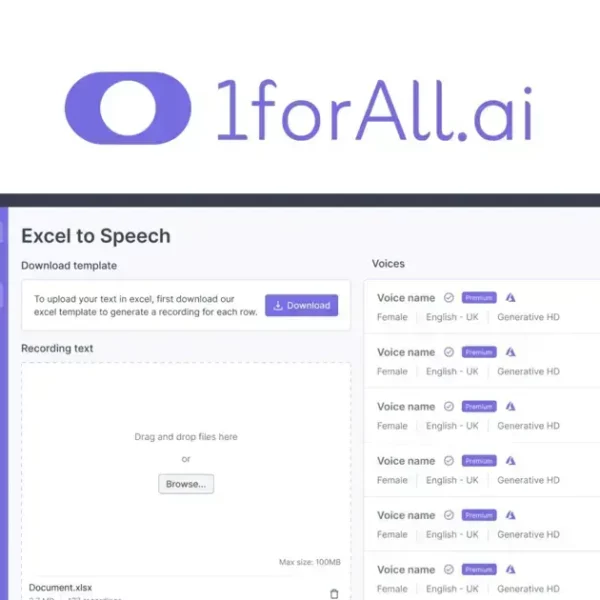SaaS for sales are cloud-based tools that enhance sales processes by automating tasks, improving collaboration, and providing analytics. Choosing the right SaaS solution, involving your team, and ensuring comprehensive training are crucial for maximizing productivity and achieving sales goals.
SaaS for sales has become a game-changer in today’s digital marketplace. This innovative approach not only streamlines operations but also enhances productivity, allowing sales teams to focus on what really matters—closing deals and driving growth.
What is SaaS for Sales?
SaaS for Sales refers to Software as a Service solutions specifically designed to enhance the sales process. These cloud-based tools allow sales teams to manage customer relationships, track leads, and automate various tasks. With SaaS for sales, businesses can access their software from anywhere, which increases flexibility and collaboration among team members.
One of the key advantages of SaaS for sales is that it eliminates the need for extensive IT infrastructure. Companies can subscribe to a service and start using it immediately, without the complications of installation and maintenance. This model also ensures that sales teams always have access to the latest features and updates, as the service is continuously improved by the provider.
Features of SaaS for Sales
Typical features of SaaS for sales include customer relationship management (CRM), sales automation tools, analytics and reporting, and integrations with other business tools. These features empower sales professionals to work more efficiently, allowing them to identify opportunities, manage customer interactions, and close deals faster.
Who Can Benefit from SaaS for Sales?
SaaS for sales can benefit businesses of all sizes, from startups to established enterprises. Small and medium-sized businesses, in particular, find it advantageous due to the lower initial costs and the scalability of these solutions. As companies grow, they can easily adjust their plans to accommodate an increasing number of users or expanded features.
Key Benefits of SaaS for Sales Solutions

SaaS for Sales Solutions offer numerous benefits that can significantly improve sales processes. One of the most significant advantages is the cloud-based nature of these solutions. Sales teams can access their tools and data from anywhere, allowing for greater flexibility and collaboration. This is especially useful for teams that work remotely or in different locations.
Cost-Effectiveness
Another key benefit is cost-effectiveness. Traditional software often requires high upfront costs for licenses and hardware. In contrast, SaaS typically operates on a subscription model, making it easier for businesses to budget their expenses. Additionally, there are often no maintenance costs, as the provider handles updates and technical support.
Enhanced Collaboration
SaaS for sales fosters enhanced collaboration among team members. Features like shared dashboards and real-time updates enable staff to work together more efficiently. This can lead to improved communication, quicker decision-making, and ultimately, better sales outcomes.
Scalability
As businesses grow, their needs evolve. SaaS solutions are inherently scalable, allowing companies to adjust their subscription plans as needed. Whether a business adds new team members or requires more advanced features, scaling up can be done easily without significant disruptions.
Analytics and Reporting
Access to powerful analytics and reporting tools is another advantage of SaaS for sales. These tools provide in-depth insights into sales performance, customer behavior, and market trends. By leveraging data, sales teams can make informed decisions, identify areas for improvement, and customize their strategies to better meet customer needs.
Best SaaS Tools for Sales Teams
When it comes to SaaS tools for sales teams, there are several outstanding options that can maximize efficiency and effectiveness. Here are some of the best SaaS tools available that cater to various sales needs.
1. Salesforce
Salesforce is a leader in the CRM space, offering a comprehensive suite of tools for sales management. It allows sales teams to manage customer relationships, track sales opportunities, and automate routine tasks. Its robust reporting features help analyze sales performance, making it an ideal choice for teams of all sizes.
2. HubSpot Sales
HubSpot Sales provides a user-friendly platform that integrates sales automation tools with marketing features. This tool helps sales teams manage contacts, schedule emails, and track interactions. With its lead tracking and scoring capabilities, teams can prioritize leads and increase conversion rates.
3. Pipedrive
Pipedrive is a sales-focused CRM designed to help sales teams visualize their sales processes. Its simple interface makes it easy to manage deals and track progress. With features like customizable pipelines and performance insights, sales professionals can stay organized and focused on closing deals.
4. Zoho CRM
Zoho CRM is another robust solution that covers all aspects of sales management. It includes features for lead generation, sales forecasting, and task automation. Zoho’s extensive integrations with other applications and its affordable pricing make it a great option for small to medium-sized businesses.
5. Close
Close is built for high-velocity sales teams and focuses on increasing productivity through intelligent automation. It offers features like built-in calling, email tracking, and powerful reporting tools. Sales teams can manage communication effectively and close deals faster, thanks to its streamlined platform.
How to Choose the Right SaaS for Sales

Choosing the right SaaS for sales can significantly impact your team’s success and productivity. Here are some key steps to consider when making this important decision.
1. Identify Your Needs
The first step in selecting the right SaaS solution is to identify your specific sales needs. Assess what challenges your team currently faces and what functionalities are essential. This can include features like customer relationship management (CRM), sales automation, or analytics.
2. Evaluate Features
Once you know your needs, evaluate various SaaS options based on their features. Look for essential tools such as lead tracking, management dashboards, and reporting capabilities. It’s important to choose a tool that aligns with your sales processes and helps streamline operations.
3. Consider Integration Capabilities
Another crucial aspect is the integration capabilities of the SaaS solution. The best tools should seamlessly integrate with your existing software, such as email, calendars, and other business applications. This ensures that your sales team can work efficiently without having to switch between various platforms.
4. Look for User-Friendliness
A user-friendly interface is vital for any sales tool. The easier the software is to navigate, the quicker your team can adapt and start using it effectively. Consider demos or free trials to assess the usability before committing to a purchase.
5. Assess Pricing and Support
Finally, assess the pricing structure and available customer support. Make sure that the SaaS tool fits within your budget while providing the necessary features. Additionally, check if the company offers robust customer support, as this can be vital if problems or questions arise.
Implementing SaaS for Sales Successfully
Implementing SaaS for sales successfully is essential to ensuring that your sales team can leverage the full benefits of these tools. Here are some critical steps to follow when rolling out a new SaaS solution in your sales department.
1. Set Clear Objectives
Before implementation, define clear objectives for what you want to achieve with the SaaS tool. This may include increasing lead conversion rates, improving customer engagement, or streamlining sales processes. By setting measurable goals, you can better assess the software’s effectiveness after implementation.
2. Involve Your Sales Team
Engaging your sales team during the implementation process is vital. Gather feedback and involve key team members in the decision-making process. This helps ensure that the chosen SaaS solution aligns with their workflows and needs, which can drive higher adoption rates.
3. Provide Comprehensive Training
Training is crucial for successful adoption. Offer comprehensive training sessions to help your sales team understand how to use the software effectively. Consider additional resources, such as video tutorials, user guides, and ongoing support, to assist team members as they adapt to the new tool.
4. Monitor and Adjust
After implementation, monitor the usage of the new SaaS tools closely. Keep track of performance metrics and gather feedback from the team about their experiences. Be ready to make adjustments as necessary based on their insights and evolving sales needs.
5. Foster a Culture of Continuous Improvement
Encourage a culture of continuous improvement within your sales team. Regularly review your SaaS tools and the processes that involve them. Stay updated on the latest features and best practices to maximize the effectiveness of the software and ultimately enhance sales performance.
In Conclusion: Maximizing Success with SaaS for Sales
Using SaaS for sales can greatly enhance your team’s efficiency and effectiveness. By choosing the right tools and implementing them carefully, you can streamline your sales processes and improve performance.
Remember to set clear goals, involve your team, and provide thorough training to ensure everyone is on board. Constantly monitor progress and be open to adjustments as needed.
With these strategies in place, your sales team can unlock the full potential of SaaS solutions, driving growth and achieving greater success.
FAQ – Frequently Asked Questions about SaaS for Sales
What is SaaS for sales?
SaaS for sales refers to cloud-based software solutions designed to enhance sales processes by providing tools for customer management, tracking leads, and automating tasks.
How can SaaS improve my sales team’s productivity?
SaaS tools can streamline operations by automating routine tasks, enabling better collaboration among team members and providing easy access to essential data.
What should I consider when choosing a SaaS for sales?
Consider your team’s specific needs, the features offered by the software, integration capabilities with existing tools, user-friendliness, and pricing structure.
Is training necessary when implementing a new SaaS tool?
Yes, comprehensive training is essential to ensure that your sales team understands how to use the new tool effectively, leading to better adoption and results.
How can I monitor the effectiveness of the SaaS tools I implement?
You can monitor effectiveness by tracking performance metrics, gathering feedback from your sales team, and regularly reviewing how the tool is impacting your sales processes.
What are some common challenges when implementing SaaS solutions?
Common challenges include resistance to change from the team, integration issues with existing systems, and the need for adequate training and support during the transition.




